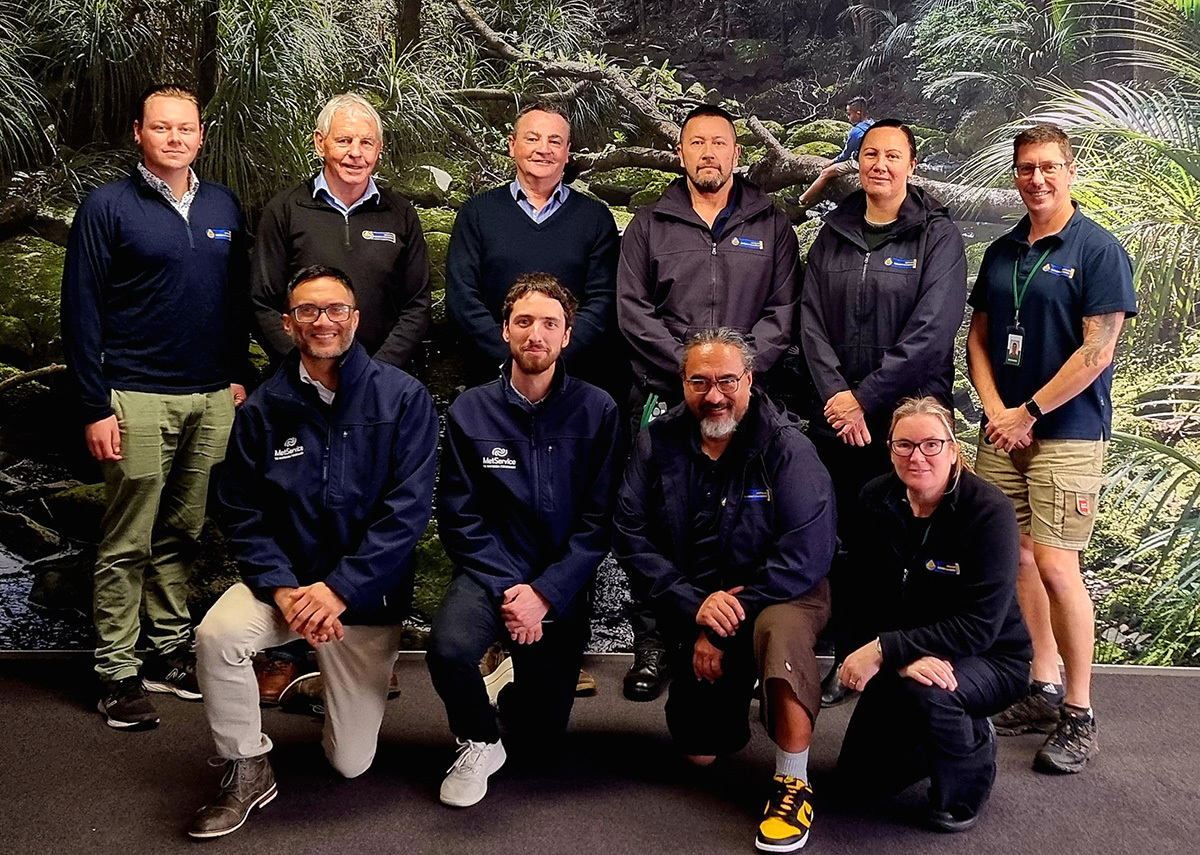Weather experts hold Northland workshop to better understand severe weather needs
29 Aug 2024, 2:16 PM
Two of MetService’s top meteorologists recently visited Northland to better understand the region’s needs during adverse weather events.
They conducted a two-day workshop with the Northland Civil Defence Emergency Management (NCDEM) team, Northland Regional Council(NRC)’s hydrologists, and representatives from the region’s three district councils.
This initiative, a first for Northland and only the second nationally, is part of MetService’s broader effort to build stronger relationships in the regions and better understand their needs.
Northland CDEM Group Manager Graeme MacDonald said, "This workshop provided a great opportunity to enhance our existing relationships and processes. Given the recent severe weather events in Northland, and the expected increase due to climate change, this collaboration is critical."
Mr. MacDonald emphasized that all NCDEM decisions for weather-related responses are based on MetService information. "With so much weather information available, it’s important to remember that when it comes to severe weather watches and warnings MetService is the ‘source of truth’.
So, ensuring we are providing relevant feedback to MetService about what their forecasts mean for us, helps ensure they can better serve Northlanders."
MetService’s Manager of Severe Weather Services, William Nepe, originally from Kaeo in the Far North, noted that while some forecasters have specific regional knowledge, the team provides forecasts for the entire country and may not always be aware of regional vulnerabilities.
"A good warning is when people take the right action," he said.
"We can predict rain and its likelihood, but NCDEM and the councils interpret the likely impact for Northland. We’re here to learn from them about their concerns and how we can help build a more efficient system. We can’t stop the next event, but we want people to be as well-informed as possible."
Nepe also highlighted the recent challenges faced by the region: "Coming off an extraordinarily wet year for Northland, with significant weather events like the Auckland Anniversary heavy rainfall and Cyclone Gabrielle, it is crucial to understand the region’s vulnerabilities and impacts.
The 2022-2023 summer period saw Whangārei recording more than four times its average rainfall, and Kerikeri almost twice as much. During this period, there were 12 separate weather warning events [1].
So strong relationships with local communities are key to understanding these vulnerabilities and impacts."
The workshop facilitated relationship building and opened channels of communication, allowing participants to share ideas and connect face-to-face.
MetService meteorologist and council relationship manager Tui McInnes highlighted the importance these personal connections. "In a crisis, knowing exactly who we’re talking to and having shared problems to solve together is crucial. It shifts us from a sense of ownership to a partnership in severe weather response."
"With the impacts of a changing climate and the increasing significance on the everyday lives of kiwis. Warning fatigue and weather anxiety are issues that are a reality. Community is what keeps us grounded and together," says McInnes.
NRC Hydrology Manager Allen Temple said his team gained valuable insights from the workshop. "The 24/7 data and information MetService provides are essential for our work. The better we understand the predicted rainfall for an event, the better information we can provide around it’s impacts. This workshop also allowed us to show MetService how vital their data is to Te Tai Tokerau, hopefully helping to shape the future of their services."
[1] A single warning event is defined as the start of a watch through to the cancellation of a warning (with any upgrades to orange warning/red warning considered the same event).

MetService meteorologists William Nepe and Tui McInnes with Northland Civil Defence Emergency Management team members at the two-day collaborative workshop.
